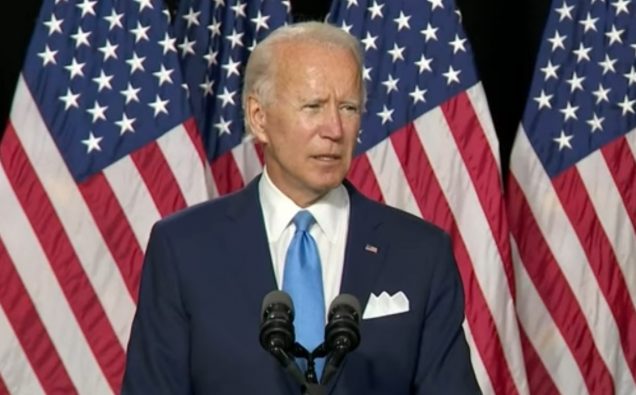
President Joe Biden Thursday announced the U.S. will conclude its military mission in Afghanistan by August 31, stressing that Washington did not go into the landlocked country for the task of nation-building.
Biden also justified his decision – despite huge questions marks over the future of Afghanistan in the face of unrelenting fighting between Kabul and the Taliban – that the United States needs to focus on more urgent issues including the fight against COVID-19, the existential question of climate change, cybersecurity, and competition with China.
In the wake of the agreement the U.S. reached under the Trump Administration with the Taliban on the pullout of troops, Biden said the status quo was not an option.
“The United States did what we went to do in Afghanistan: to get the terrorists who attacked us on 9/11 and to deliver justice to Osama Bin Laden, and to degrade the terrorist threat to keep Afghanistan from becoming a base from which attacks could be continued against the United States. We achieved those objectives. That’s why we went,” he said at the White House.
“We did not go to Afghanistan to nation-build. And it’s the right and the responsibility of the Afghan people alone to decide their future and how they want to run their country.”
The U.S and its NATO allies, he said, have trained and equipped nearly 300,000 current serving members of the Afghan National Security Force and Afghan National Defense and Security Forces to deal with situation in their country.
“But most critically, as I stressed in my meeting just two weeks ago with President Ghani and Chairman Abdullah, Afghan leaders have to come together and drive toward a future that the Afghan people want and they deserve,” he said in reference to the political solution to internal Afghan discords and noted Afghanistan has never been one unified entity.
“And we’re going to engage in a determined diplomacy to pursue peace and a peace agreement that will end this senseless violence,” said the president as the Afghan Taliban reportedly made advances in several in around 150 of around 400 districts.
He said Secretary of State Antony Blinken and Special Representative for Afghanistan Reconciliation will work vigorously with the parties in Afghanistan, as well as the regional and international stakeholders to support a negotiated solution.
“To be clear — to be clear: Countries in the region have an essential role to play in supporting a peaceful settlement. We’ll work with them, and they should help step up their efforts as well.”
Nearly 20 years of experience, Biden said, has shown us that the current security situation only confirms that “just one more year” of fighting in Afghanistan is not a solution but a recipe for being there indefinitely.
“It’s up to Afghans to make the decision about the future of their country.”
He challenged those who criticize his decision to pull out troops from Afghanistan.
“After 20 years — a trillion dollars spent training and equipping hundreds of thousands of Afghan National Security and Defense Forces, 2,448 Americans killed, 20,722 more wounded, and untold thousands coming home with unseen trauma to their mental health — I will not send another generation of Americans to war in Afghanistan with no reasonable expectation of achieving a different outcome.
“The United States cannot afford to remain tethered to policies creating a response to a world as it was 20 years ago. We need to meet the threats where they are today.
“Today, the terrorist threat has metastasized beyond Afghanistan. So, we are repositioning our resources and adapting our counterterrorism posture to meet the threats where they are now significantly higher: in South Asia, the Middle East, and Africa.”
The president said the U.S. military and intelligence leaders are confident they have the capabilities to protect the homeland and our interests from any resurgent terrorist challenge emerging or emanating from Afghanistan.
“We are developing a counterterrorism over-the-horizon capability that will allow us to keep our eyes firmly fixed on any direct threats to the United States in the region, and act quickly and decisively if needed.
“And we also need to focus on shoring up America’s core strengths to meet the strategic competition with China and other nations that is really going to determine — determine our future.
“We have to defeat COVID-19 at home and around the world, make sure we’re better prepared for the next pandemic or biological threat.
“We need to establish international norms for cyberspace and the use of emerging technologies.
“We need to take concerted action to fight existential threats of climate change.”
















